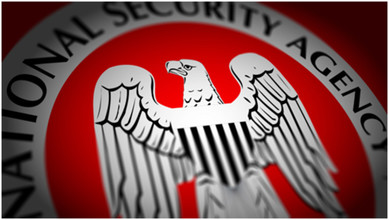
Despite Larry Klayman’s bid to reach discovery because of documented government untrustworthiness on the programs, Judge Richard J. Leon — who enjoined one of the programs in 2013 after finding NSA efforts likely violated the Constitution — said the 2015 USA Freedom Act removed actionable controversy.
“Both of plaintiffs’ requests for declaratory and prospective injunctive relief are accordingly mooted by this change in law,” the opinion said. “[E]ven if the government attempted to restart the program by seeking [Federal Intelligence Surveillance Court] approval of a bulk collection of telephony metadata, the FISC could not grant the request.”
Klayman led plaintiffs in the two lawsuits against the NSA in 2013 over its PRISM program collecting bulk communications from internet companies and a bulk collection of phone metadata from Verizon Communications Inc. That came after public revelations by former NSA contractor Eric Snowden about the programs and a FISC ruling approving the telephony metadata collection.
Snowden’s revelations contradicted previous government denials, and the suits alleged the programs violated the First, Fourth and Fifth Amendments. Judge Leon granted an injunctionon the telephone metadata program in December 2013, saying Constitution author James Madison “would be aghast.”
Two months after the Freedom Act passed in June 2015, the D.C. Circuit lifted the injunction on appeal because plaintiffs failed a high bar of likelihood to prevail needed for an injunction. FISC quickly approved continued collection until the Freedom Act took effect in December 2016.
Klayman tried to argue that a voluntary-cessation exception to mootness applied, where a promise that a behavior had ended would still allow resumption of abuses after the case, but Judge Leon found that the Freedom Act and a judicial body, FISC, blocked such resumption.
The decision also said that once the government introduced a statement from NSA director of operations Wayne Murphy that bulk data collection ceased in 2011, the plaintiffs had the burden to show otherwise, but despite their claims of past lies, they “have not pointed to any evidence to contest Murphy’s sworn statement.”
The decision also rejected plaintiffs’ “efforts to salvage their suit” by arguing there was evidence the government had intercepted their own communications. For example, Klayman had suggested, “in conclusory fashion” according to Judge Leon, that a “tech meltdown” during a radio interview about the NSA showed that the agency was trying to harass him, while other plaintiffs said they received threatening emails and texts from other countries, including Afghanistan.
Klayman said he’s “thankful for what Judge Leon has done in the past,” which includes issuing a second injunction on telephony data collection in November 2015 that was stayed by the D.C. Circuit a day later, but said “he did the wrong thing” Tuesday. He added that while he didn’t think Judge Leon did anything improper, he may have bowed to “pressure.”
“You can’t say legislation means everything is copacetic. Because they’ve been violating prior legislation — lawless,” Klayman said. “There is a lot of pressure on these judges to rubber stamp these things. The question is, did he lose his nerve?”
Klayman also suggested Judge Leon may have been motivated to “clear his calendar” for a whistleblower lawsuit he’d brought to his court with former NSA and CIA contractor Dennis Montgomery in June, and hoped the judge would “right himself” in the new case.
That complaint alleges Montgomery presented evidence to the FBI in 2015 of continuing illegal surveillance on millions of Americans, including judges, but then-director James Comey personally buried the case since the FBI was also engaging in such activities.
That suit names former president Barack Obama as well as the CIA, NSA, FBI and current and former heads of intelligence agencies.
The Justice Department did not respond to a request for comment Wednesday.
Klayman is representing himself and the other plaintiffs.
The government is represented by Benjamin C. Mizer, Joseph H. Hunt, Anthony J. Coppolino, James J. Gilligan, Rodney Patton, Julia A. Berman and Caroline J. Anderson of the U.S. Department of Justice.
The case is Klayman et al. v. National Security Agency et al., case number 1:13-cv-00851 and 1:13-cv-00881, in the U.S. District Court for the District of Columbia.
–Editing by Marygrace Murphy.

